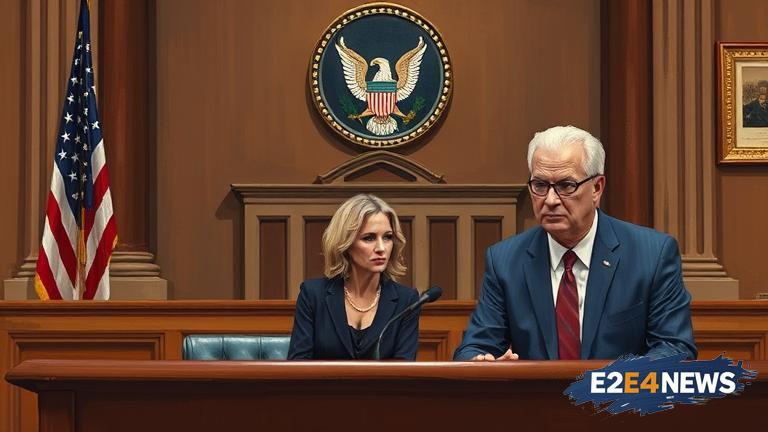In a surprising turn of events, federal prosecutors have opted to charge a woman with a misdemeanor after a grand jury declined to indict her on felony charges for allegedly assaulting an FBI agent. This decision comes after prosecutors attempted to convince the grand jury to indict the woman on felony charges not once, not twice, but three times. Despite their best efforts, the grand jury refused to return an indictment, leading prosecutors to reassess their strategy. The woman’s case has sparked controversy and raised questions about the use of force by law enforcement agents. According to reports, the incident occurred when the FBI agent attempted to apprehend the woman, who allegedly resisted arrest and assaulted the agent. The agent suffered minor injuries, but the incident was deemed serious enough to warrant felony charges. However, the grand jury’s refusal to indict the woman on felony charges suggests that they did not find the evidence presented by prosecutors to be sufficient to support such a serious charge. Prosecutors may have overreached in their pursuit of felony charges, and the grand jury’s decision may be seen as a rebuke of their tactics. The decision to charge the woman with a misdemeanor instead is likely a pragmatic one, as it allows prosecutors to still hold her accountable for her actions while avoiding the risk of another failed indictment attempt. The case highlights the challenges faced by prosecutors in securing convictions, particularly in cases where the evidence may be disputed or the defendant’s actions may be seen as justified. The use of force by law enforcement agents is a highly contentious issue, and this case may be seen as a test of the limits of what constitutes acceptable use of force. The woman’s alleged assault on the FBI agent has sparked a heated debate about the role of law enforcement in society and the need for greater accountability. As the case moves forward, it will be closely watched by civil liberties groups and law enforcement advocates alike. The outcome of the case may have significant implications for the way in which law enforcement agents interact with the public, and the consequences for those who resist arrest or assault officers. The woman’s decision to allegedly assault the FBI agent has been widely condemned, but some have argued that she was justified in her actions given the circumstances. The incident has also raised questions about the training and protocols in place for law enforcement agents, and whether they are adequately equipped to handle situations like this. The FBI has faced criticism in the past for its handling of similar incidents, and this case may be seen as a opportunity for the agency to reexamine its policies and procedures. As the case progresses, it is likely that more details will emerge about the incident and the woman’s alleged actions. The prosecution’s decision to charge her with a misdemeanor may be seen as a compromise, but it is unlikely to satisfy those who believe that she should have been charged with a more serious offense. The case is a reminder that the justice system is complex and multifaceted, and that the outcome of any given case is never certain. The woman’s fate will ultimately be decided by a judge or jury, and it remains to be seen how the case will be resolved. In the meantime, the incident has sparked a necessary conversation about the use of force by law enforcement agents and the need for greater accountability. The case may also have implications for the way in which prosecutors approach similar cases in the future, and may lead to changes in the way that evidence is presented to grand juries. The decision to charge the woman with a misdemeanor is a significant development in the case, and it will be interesting to see how the prosecution’s strategy evolves from here. The case is a complex one, and it will require careful consideration of the evidence and the law in order to reach a just outcome. The woman’s alleged assault on the FBI agent has serious consequences, and it is important that the justice system holds her accountable for her actions. At the same time, it is also important that the system is fair and impartial, and that the woman is given a fair trial. The case is a reminder that the justice system is not always perfect, and that there are often gray areas and nuances that must be considered. The woman’s case is a prime example of this, and it will be closely watched by legal experts and the general public alike.
